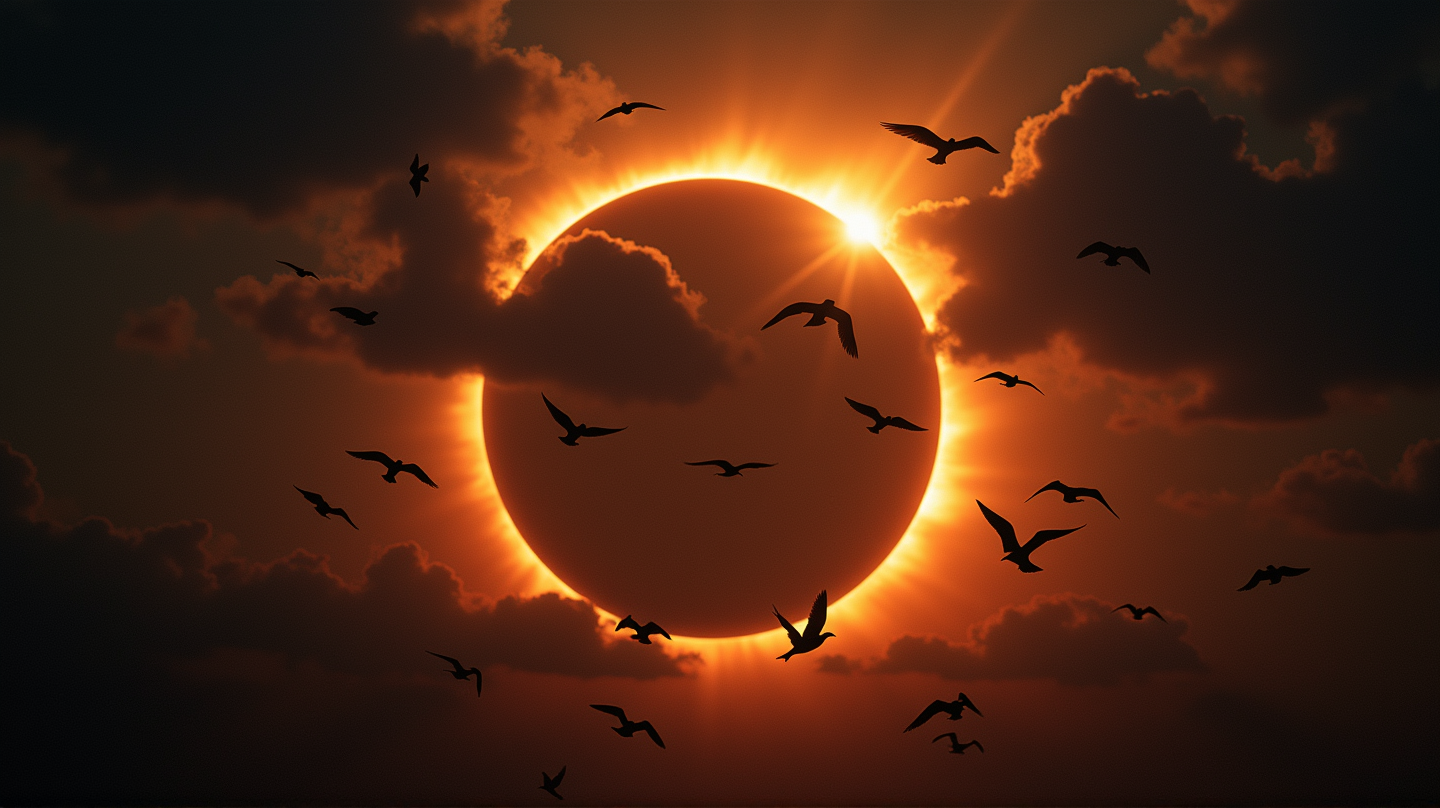Eclipse 2024: Birds Sing a False Dawn Chorus
During the 2024 solar eclipse, 29 bird species altered their vocalizations, with some mimicking dawn songs as daylight returned.

The solar eclipse of April 2024 was a momentous event, not just for stargazers and eclipse chasers but also for the avian world. As the moon briefly obscured the sun, plunging North America into brief midday darkness, an intriguing phenomenon was observed among the feathered dwellers of the earth.
A Natural Experiment
In an innovative endeavor, Indiana University’s researchers leveraged the rarity of the total solar eclipse to study its impact on wildlife. Their citizen science project, facilitated by the SolarBird app, encouraged people across North America to document bird behavior before, during, and after the eclipse. This project gathered over 11,000 observations, revealing fascinating insights into avian responses.
Vocal Variations and Dawn Choruses
According to Space, data analysis revealed that 29 out of 52 bird species altered their vocal expressions during the eclipse. Notably, the post-eclipse phase saw 19 species participating in a ‘false dawn chorus’, where they sang songs typically reserved for the morning. This behavior illustrates the birds’ profound sensitivity to environmental cues.
The Science Behind the Songs
IU’s Liz Aguilar and her team used automated recorders and the BirdNET neural network to further delve into this phenomenon. Their comprehensive study uncovered the nuanced ways different species reacted; some fell silent while others found their voices in the eclipse’s shadow.
Ecological Implications
Beyond the eclipse, these findings raise significant questions about the broader impact of light variations on wildlife. As Professor Kimberly Rosvall commented, “It’s crazy that you can turn off the sun, even briefly… This has important implications on the impact of urbanization or artificial light at night, which are much more widespread.”
A Celestial Serenade
This celestial event has opened a new chapter in understanding animal behavior in response to cosmic phenomena. It also serves as a reminder of the interconnectedness of life on Earth with the vast, dynamic universe. Such reflections encourage continued exploration and observation, inviting us to listen more closely to the natural world around us.

